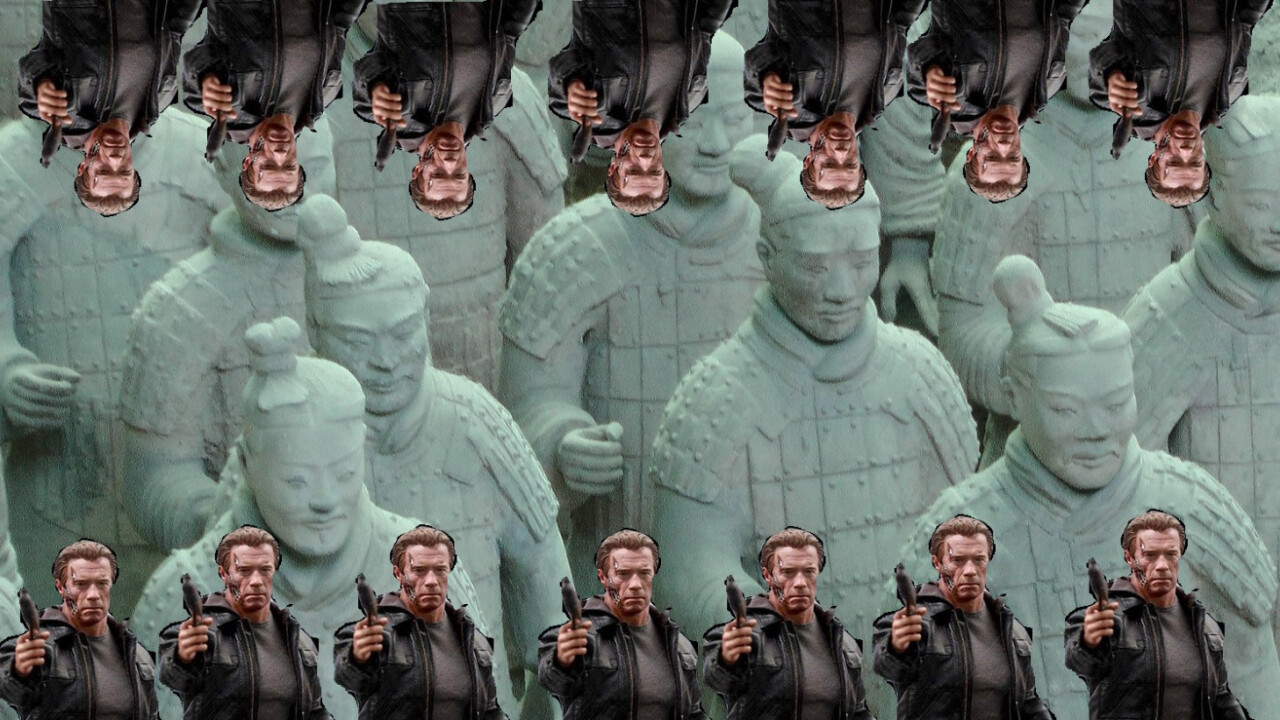
China’s progress towards its goal of becoming the world’s leader in AI by the year 2025 remains unchecked. While its efforts still lag behind the US, thanks to the likes of Google and Microsoft, there’s an alarming amount of research indicating the gap is shrinking.
It’s only been a year since TNW reported China’s announcement it was shifting its national strategy to claim the artificial intelligence crown. In that time China has advanced its agenda to a startling degree, at least according to the experts.
Air Force General VeraLinn “Dash” Jamieson, deputy chief of staff for intelligence, surveillance and reconnaissance on the Air Staff at the Pentagon, spoke last Thursday at a military event. She told attendees she was concerned that China is taking AI more seriously than other nations. She cited the fact that US spending on AI was a couple billion, while China is much more heavily invested, saying:
We estimate the total spending on artificial intelligence systems in China in 2017 was $12 billion. We also estimate that it will grow to at least $70 billion by 2020.
And Dr. Steven White, who earned his doctorate at MIT and now teaches at Tsinghua University in Beijing, believes people in the west might be underestimating China’s dedication. He likens the country’s succeed at all costs AI program to Russia’s Sputnik moment.
During a recent interview White said:
Research institutes, universities, private companies and the government all working together in a broad area … I haven’t seen anything like it. China is committed to becoming leader in AI, and the U.S. will lose because they don’t have the resources.
But a recently published study indicates there are far more factors contributing to the closing AI gap between the US and China than just Chinese spending. According to the researchers, we’re likely watching the early stages of an industrial revolution, and that historically means massive geopolitical upheaval is on the horizon.
The Center for New American Security recently published a study conducted by Michael Horowitz, Elsa B. Kania, Gregory C. Allen, and Paul Scharre, predicting the effect that AI will have on the geopolitical landscape in the near-term. According to the research, China is catching up to the US by employing a strategy that should be familiar:
During the last year of the Obama administration, the White House released several papers designed to move the United States toward a more coherent approach to artificial intelligence. Covering issues ranging from regulation to innovation to bias, these reports drove a series of conversations between scientists and government officials. Some of the authors of this report have argued that China’s AI strategy reflects the key principles from the Obama administration report – now it is China adopting them, instead of the United States.
Unfortunately, despite congressional efforts to get the conversation started at the national level in the US, the White House’s current leadership doesn’t appear interested in coming up with a strategy to keep up with China.
The study goes on to indicate that the recent US summit on AI was a step in the right direction, though an actual plan is what’s needed:
At the least, a national strategy would be a symbol of US commitment to AI innovation, which could play a role in ensuring the United States remains an AI leader.
China has allocated billions of dollars towards infrastructure to house hundreds of AI businesses in dedicated industrial parks. It has specific companies, the Chinese counterparts to US operations like Google and Amazon, working on different problems in the field of AI. And it’s regulating education so that the nation produces more STEM workers. But perhaps most importantly, China makes it compulsory for businesses and private citizens to share their data with the government — something far more valuable than money in the world of AI.
Meanwhile, in the US, the Trump administration has shown little interest in discussing its own country’s AI — yet, may soon have to talk to China’s.
The People’s Republic is already prototyping a machine learning-powered system to handle the nuances of international diplomatic discourse. Essentially, China is automating diplomacy at time when the US president’s self-proclaimed best quality is his ability to negotiate. The world is changing.
The country that eventually leads in AI will have an advantage in nearly every sector and industry, says the experts. According to General Jamieson, “second place might as well be last place.”
Get the TNW newsletter
Get the most important tech news in your inbox each week.




